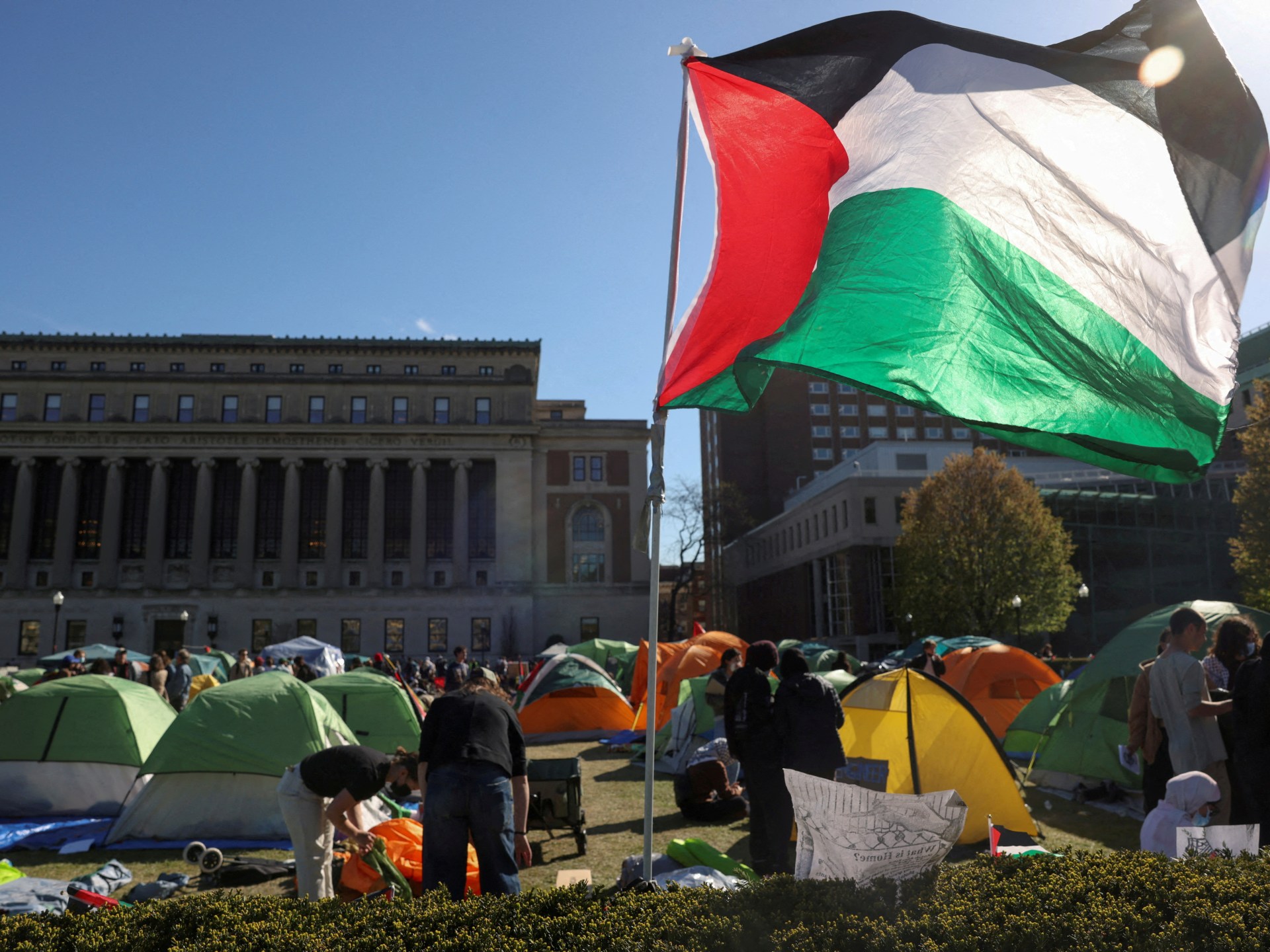Rhode Island
RI Senate to vote on gun ‘safe-storage’ law. What to know.
PROVIDENCE – When the state Senate votes Tuesday on proposed new “safe-storage” requirements for guns, it will, by chance, be doing so within days of this USA Today headline from Detroit: “School Gunman’s Dad Guilty of Manslaughter.”
There, James Crumbley, the father of a school shooter who killed four students and injured seven other people at Oxford High School in November 2021, was found guilty of failing to secure a gun at home and doing nothing to address acute signs of his son’s mental turmoil. Crumbley – and months earlier, his wife – were convicted of involuntary manslaughter.
Safe storage bill draws opposition from Republicans
Closer to home, the proposed new Rhode Island safe-storage law that emerged from a Senate committee on a straight 9-to-3 party-line vote last week followed years of heart-wrenching testimony of family members left behind by a suicide in Warwick, as well as the accidental shooting death of a Johnston teenager at the hands of a friend playing with his uncle’s unlocked gun.
The three Republicans in the Senate Judiciary Committee hearing room cast the three nay votes.
They included Senate Minority Leader Jessica de la Cruz who, in her weekly newsletter, reiterated her belief that the legislation [H2202] co-sponsored by 28 of the 37 current senators is “an infringement on our right to self-defense with a firearm in our homes.”
And she was not alone. As both a Rhode Island National Guardsman and “Firearms Policy Coalition Member,” Christopher Morin of Coventry told the lawmakers in written testimony that the requirement that firearms “be secured in locked containers or equipped with tamper-resistant locks at all times when not in use” is impractical, “could delay or prevent individuals from defending their homes and loved ones in emergencies” and “infringes on the rights of law-abiding gun owners.”
He said the penalties could also add to the trauma of “individuals and families already suffering fromaccidents involving firearms” – presumably their own.
Arguments in support of the bill
But Rhonda Brewster, the mother of the 16-year-old shot to death by his best friend in Johnston in 2022, told legislators during one of the gun hearings last week that she has a chihuahua and a Rottweiler who would alert her of an intruder in plenty of time.
Working in child protective services for the state, she said, she also sees cases that don’t make the headlines where children get into guns and shoot themselves.
“Just within the last four months, we’ve had about six cases of children having access to guns – with their parents’ home – and shooting themselves,” she said.
More: RI faith leaders implore state ‘leaders to lead’ with assault-weapons ban and safe storage law
For South Kingstown Councilwoman Patricia Alley, last week’s hearings marked the latest in a year-after-year series of visits to the State House to recount the events that led to the suicide of her sister Allyson Dosreis at age 37.
“This bill would prevent other Rhode Island families from enduring the same devastation that my family and I have gone through after the suicide of my sister, Ally,“ she told the House Judiciary Committee.
Alley told lawmakers how she and her sister got close later in life when she reunited with her birth family. But COVID and the pandemic took a toll on her sister’s hairdressing business, and then her sister’s partner “abruptly” ended their 10-year relationship and listed their house for sale. He was active duty military, Alley said, and when his firearm wasn’t with him, it was in an “easily accessible location known to the family.”
“And when she was at her lowest, she used that gun to end her life,” Alley said.
“Suicide is often an impulsive act,” she told the legislators. “If you can prevent access to a gun, you can short-circuit that impulse and save a life.”
What would the penalties be for violating the safe storage law?
The potential penalties for violating the proposed new Rhode Island safe-storage law start with a fine of up to $250 a first offense, which would be treated as a civil infraction, to a fine of up to $1,000 for a second offense and up to six months in prison, and a fine of up to $500 for three of more violations.
The penalty gets steeper – a potential year in prison and $1,000 fine – for someone “who knows or reasonably should know that a child” or someone prohibited from purchasing a firearm “is likely to gain access to the firearm.”
The penalty increases exponentially for the gun owner if the unsecured gun is obtained by a child or a person prohibited by state or federal law from having a firearm and is then used to commit a crime or cause injury. Any of those scenarios would be punishable by up to five years in prison and a fine of up to $5,000.

Rhode Island
Rhode Island Native Makes Acting Debut Alongside Jamie Foxx

Not many people can call Jamie Foxx a coworker, but Toshia Galligan can.
The Coventry, Rhode Island native is set to make her acting debut alongside Foxx and several Hollywood stars with the release of Not Another Church Movie, due in theatres on May 10th.
Galligan and her castmate Luc Ashley stopped by the Fun 107 studio to give the details on the upcoming film.
Who Is Toshia Galligan?
Galligan got her start in pageantry but felt she was destined for other avenues, and her attention turned to modeling,
“I did Rhode Island Fashion Week…that led to commercials for Boston Cosmetic and Laser Center, which then led to meeting directors,” shared Galligan.
She eventually crossed paths with James Cummings, the producer of Not Another Church Movie.
“He said to me, ‘I have a role for you,’ and I haven’t looked back since,” said Galligan.
Becoming an actor felt unreal to Galligan, but thanks to Jamie Foxx, she felt right at home on her first movie set.
“I didn’t believe it was really happening until I met Jamie Foxx’s eyes, and we smiled at each other, and I said, ‘This is really happening,’” she laughed. “He’s really cool to work with. On set, he kept everyone in great spirits. I was nervous but he made me feel really comfortable because he just made me laugh the whole time.”
Keep an eye out for Galligan as “Earth Angel”, one of God’s right-hand women.
READ MORE: Providence Bistro Gets the Spotlight from Jamie Lee Curtis
What Is Not Another Church Movie About?
The official synopsis:
Hoprah Windfall (Luc Ashley), fretting as her ratings plummet because her talk show and audience need some new blood, calls on God (Jamie Foxx) and demands His help. God and his angels decide there’s no better choice to replace her with than the hardest-working man in the world, Taylor Pherry (Kevin Daniels). But when the Devil (Mickey Rourke) overhears this, he comes up with a fiendish plan of his own to disrupt the whole ordeal.
While Taylor prepares for one of his many jobs that mostly entail helping his dysfunctional but lovable family through their trials and tribulations, God appears and orders him to help Hoprah accomplish her mission, by writing a movie.
It’s a fun, parody comedy that takes playful jabs at Tyler Perry movies, with familiar actors joining the cast such as Vivica A. Fox, Kyla Pratt, Lamorne Morris, and Tisha Campbell.
Leave The Kids at Home for This One
Galligan was joined in studio by Luc Ashley, actor and comedian, who portrays a parody character of Oprah by the name of “Hoprah Windfall” in the movie.
“Everyone is not getting a car, but they’re getting something,” joked Ashley.
Ashley raved about leading man Kevin Daniels and promised non-stop laughter throughout the film.
“This is not a family movie, leave the kids at home,” she said. “It’s a good laugh. We need some comedy right now.”
Not Another Church Movie hits theaters on May 10th.
SouthCoast’s Most Memorable Celebrity Encounters
The SouthCoast has seen its share of celebrities over the years. Here are some of your most memorable encounters.
Gallery Credit: Jackson Scott
21 Famous People You Didn’t Know Were From the SouthCoast
Move over Hollywood, you’re not the only town that breeds stars. We’ve compiled a list of some famous people that either are native to the SouthCoast, or eventually called it home.
Gallery Credit: Maddie Levine
Famous People You Didn’t Know Were Buried in Massachusetts
Massachusetts has a lot of history. It turns out it’s also the final resting place of many notable people. Here are a few.
Gallery Credit: Jackson Scott
Rhode Island
Authorities link four men to series of home break-ins targeting Indians, South Asians
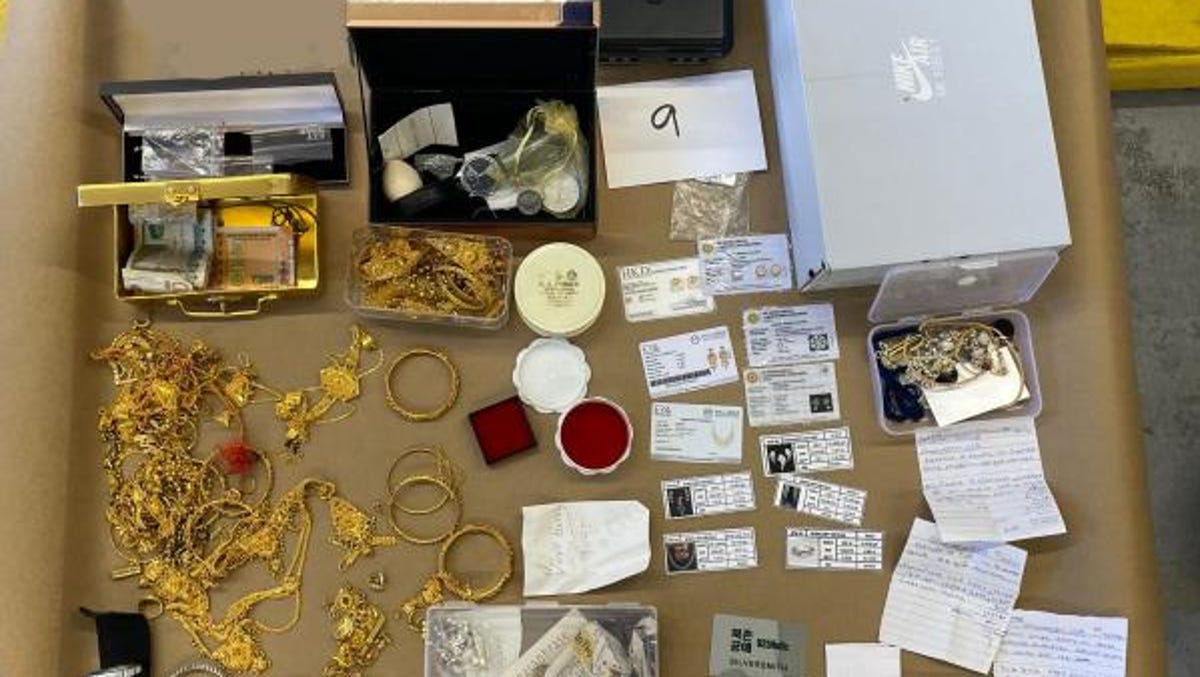
Authorities on Friday said they broke up a crime ring that for six years targeted Indian and South Asian families, breaking into their homes and stealing millions of dollars worth of jewelry and cash.
The four Rhode Island men — brothers Jovan Lemon, 29, of Providence, and Paul Lemon, 30, of Warwick, along with their father Paul Miller, 46, of Woonsocket, and Steven Berdugo, 28, of Providence — are believed to have committed at least 43 burglaries in 25 Massachusetts communities, Middlesex District Attorney Marian Ryan said during a press conference.
The four men also have ties to a violent Rhode Island gang that is known to authorities there.
“This was really a case of persistent, dogged work,” Ryan said.
‘Pursuing every lead’: Authorities say thieves are targeting homes owned by South Asians
The group is alleged to have broken into homes in Billerica, Boxborough, Carlisle, Easton, Hopkinton, Lincoln, Weston, Sudbury, Andover, Bellingham, Boxford, Franklin, Hudson, Littleton, Medway, Middleton, Millis, North Attleboro, Norwell, Pembroke, Seekonk, Sharon, Southborough, Wenham, and Westwood. Burglaries occurred between July 21, 2018, and March 30, 2024.
Four men were indicted by grand jury on April 18
On April 18, a Middlesex grand jury indicted each of the four men on 95 counts of unarmed burglary and breaking and entering into a dwelling during the daytime with the intent to commit a felony.
Ryan said home burglaries often leave victims feeling vulnerable and upset, but because these victims were targeted due to their nationality, it made them feel worse, she said.
“The items stolen not only had monetary value, but were items that were passed down in families from generation to generation,” she said.
‘Hitting a bunch of communities’: Police say ‘distinctive’ pickup truck led to arrest of Marlborough man
Investigators, Ryan said, believe the victims were targeted because the suspects thought their households were more likely to contain precious metals, jewelry and other valuable heirlooms.
The total value of items stolen may be as much as $4 million.
DA: Suspects may have used Wi-Fi jammers to disable security cameras
Ryan called the group “sophisticated,” saying they were rarely caught on camera and may have used Wi-Fi jammers that would take home security cameras offline temporarily while they were committing burglaries, affecting both the homes they were in and those nearby.
In addition, they never used cellphones during or immediately after the burglaries so they could not be tied to the affected area, Ryan said.
The group, Ryan said, also had member lists for temples, which they possibly used to know when they may be away for events and holidays. It was not known how they obtained these lists.
‘Lock your cars’: Police report rise in vehicles break-ins in Marlborough and Sudbury
The burglars, she said, broke into the homes, usually through a second-floor window. They’d steal jewelry and cash and even safes that weighed as much as 400 pounds, throwing them out the window before taking them away.
Authorities served four search warrants on Friday morning in Rhode Island, recovering jewelry and a large amount of Indian currency. They also found several guns. All four men remain in custody in Rhode Island.
Arrests come after a nine-month investigation
“The theft crew we arrested today stole countless items of great monetary, emotional and cultural value from families in multiple states, and did so by violating the sanctity of their homes,” said Massachusetts State Police Lt. Col. Mark Cyr, head of the Division of Homeland Security. “Such brazen criminal actions will not be tolerated in our communities. This investigation highlights the dedication of our law enforcement partners to work collaboratively to take down complex criminal networks.”
Friday’s arrests come after a nine-month investigation by the Middlesex District Attorney’s Office, the State Police detective unit assigned to the District Attorney’s Office and the State Police Division of Homeland Security, including the MACrimeNet program operated by the State Police Fusion Center.
Also assisting in the investigation were police from every community affected by the break-ins, the Holliston, Northborough, Shrewsbury, Walpole, Wellesley and Westborough police, as well as several police departments in Rhode Island and the United States Marshals.
It’s unknown when the four men will be brought to Massachusetts to be arraigned.
Norman Miller can be reached at 508-626-3823 or nmiller@wickedlocal.com. For up-to-date public safety news, follow him on X @Norman_MillerMW or on Facebook at facebook.com/NormanMillerCrime.
Rhode Island
As R.I.’s temperatures grow hotter, local groups working to cool down ‘heat islands’ – The Boston Globe

Rhode Island is the smallest, yet most urbanized state in the nation. The state contains 139 square miles of impervious surfaces, amounting to 13 percent of its land area, according to a 2022 study. These surfaces form an “intricate network of interactions and conditions such as elevated surface and air temperatures,” according to the study.
People living in these densely populated urban areas face higher temperatures than those in more leafy locations, and the phenomenon is exacerbated as the climate heats up. Scientists and advocates use the term “heat island” to describe an area that experiences many more days of extreme temperatures than those mere miles away.
Across Rhode Island, advocacy groups are planting trees, turning parking lots into community gardens, offering cooling centers like the one at Emmanuel House, and advocating for utility justice so everyone has air conditioning and running water during heat waves. Their efforts often focus on the state’s densely populated urban areas, including Providence’s Silver Lake, Elmwood, and West End neighborhoods with population densities of 14,987, 15,793, and 17,245 per square mile respectively. In comparison, the city’s Blackstone neighborhood has a density of just 4,986 people per square mile.
Advocates said that “greening” neighborhoods by pursuing both on-the-ground actions and policy change will help keep them cooler as the planet warms.
Often this literally means dirty work. “It’s very tangible,” said Amelia Rose, executive director of Groundwork RI, which creates community gardens, offers summer jobs to Providence youth, and advocates for compost initiatives statewide. The organization’s work is “not just advocacy or going to the State House and lobbying for a bill,” Rose said. Those actions are critical, too, she said, but getting plants into the ground allows residents to see visible, immediate results.
“Healthy Neighborhoods,” one of Groundwork’s initiatives in Providence, promotes greenspaces as a way to promote healthier communities. Rose’s projects have reclaimed parking lots and used the space to create community gardens. The organization now owns and cares for a total land area of about a half-acre throughout Providence, including two residential housing-size lots. Other endeavors included the launch of its urban farm and greenhouse in 2015. Groundwork is leading an effort to create a composting hub in the West End, and organizing tree plants in an effort to increase green infrastructure.
“It’s a community pride type of thing. It changes the way people view their neighborhood,” Rose said.
Not only are higher temperatures less comfortable, people’s health suffers. People living in heat islands are often impoverished, and as a result they tend to have higher rates of diabetes, heart disease, and asthma. This makes them more vulnerable to heat stress than those living in greener, and therefore cooler, neighborhoods.
Marzullo said he has noticed that as temperatures rise, Emmanuel House residents experience visibly deteriorating health. “It’s very dangerous for some of my clients. The older clients, especially the clients that have breathing problems. … I see them coming in here, they’re beet red and purple,” he said.
Cassie Tharinger of the Providence Neighborhood Planting Program holds monthly tree-planting parties in Providence. The program focuses its efforts on the most vulnerable communities: densely built areas that experience eight to 10 days above 90 degrees every year. Elsewhere, near the coast, temperatures reach 90 degrees only about once a year, at the peak of summer heat, according to the Rhode Island Department of Environmental Management.
While some of this temperature difference stems from ocean breezes, urban heat islands endure disproportionately higher temperatures because of their built-up environments. Concrete and other common construction materials do not reflect light well; they absorb more heat and foster hot microclimates, according to a study in the International Journal of Environmental Monitoring and Analysis.
The Environmental Protection Agency defines heat islands as urbanized areas with structures such as buildings, roads, and other infrastructure which absorb more sun than natural landscapes. These surfaces re-emit that heat, increasing daytime temperatures so that these neighborhoods reach average temperatures that are about 1 to 7 degrees higher than those in outlying areas.
It’s important to employ a wide array of methods, said Jessica Wilson, design planner for the city of Lowell, Mass. Her office advocates for policies, plants trees, and designs parks for the city.
“Confronting environmental injustices means both on-the-ground work like planting trees, but also advocating for policy changes,” Wilson said.
“All the tree planting in the world, as much as that provides shade and a million benefits, on the hottest day of the year, that’s not enough,” she added.

High density means more buildings, more traffic, and more concrete. One area in Providence’s South Side has a 47 percent poverty rate and just a 6 percent canopy rate — the lowest percentage of canopy cover in all of Providence, according to the Tree Equity Score, which measures levels of tree canopy coverage in cities nationwide.
Neighborhoods with higher poverty rates and more people of color are also the neighborhoods with the least tree canopy. This lower income demographic is also at high-risk for health risks from extreme heat, according to the state Department of Health.
Environmental justice advocates, furious with the disproportionate impacts of urban heat islands on Rhode Island residents of color, pressed the state to protect residents from utility shut-offs during heat waves. In 2007, the state passed the nation’s first summer utility shut-off moratorium. When the state temperature average reaches 90 degrees, no households in the state can have their air conditioning, running water, or gas terminated by utilities.
While advocates have welcomed this step, the policy is “flawed,” said Camilo Viveiros, director of the George Wiley Center, a labor union that organizes for “utility justice.” Temperatures vary greatly statewide, and temperatures in urban heat islands are well above the 90 degree threshold even when the state average is well below it. Given the conditions of the policy and the varying conditions statewide, the moratorium rarely goes into effect.
Raffini, the youth program director for the Southside Community Land Trust, who only uses her first name, has lived in the South Side of Providence for most of her life, in a neighborhood that includes the most prominent heat islands in Providence.
Raffini said the ideal South Side neighborhood would provide safety, gardens, green space, and summer jobs for young people — including in community gardens. Central to the Southside Community Land Trust’s mission is integrating racial justice work with their hands-on gardening practices.
Any urban greening projects need to go hand-in-hand with education that links racial history with the importance of environmentalism. Not everyone is going to do this sort of work, Raffini said, but she encourages everyone to notice its value.
“I don’t want you to walk a mile in my shoes. I want you to stand in my garden,” she said.
Maya Kelly is a freshman at Brown University studying Urban Studies.
-

 Movie Reviews1 week ago
Movie Reviews1 week agoMovie Review: The American Society of Magical Negroes
-

 World1 week ago
World1 week agoIf not Ursula, then who? Seven in the wings for Commission top job
-

 News1 week ago
News1 week agoGOP senators demand full trial in Mayorkas impeachment
-

 World1 week ago
World1 week agoCroatians vote in election pitting the PM against the country’s president
-

 World1 week ago
World1 week ago'You are a criminal!' Heckler blasts von der Leyen's stance on Israel
-

 Politics1 week ago
Politics1 week agoTrump trial: Jury selection to resume in New York City for 3rd day in former president's trial
-

 Movie Reviews1 week ago
Movie Reviews1 week agoPon Ondru Kanden Movie Review: This vanilla rom-com wastes a good premise with hasty execution
-

 Kentucky1 week ago
Kentucky1 week agoKentucky first lady visits Fort Knox schools in honor of Month of the Military Child
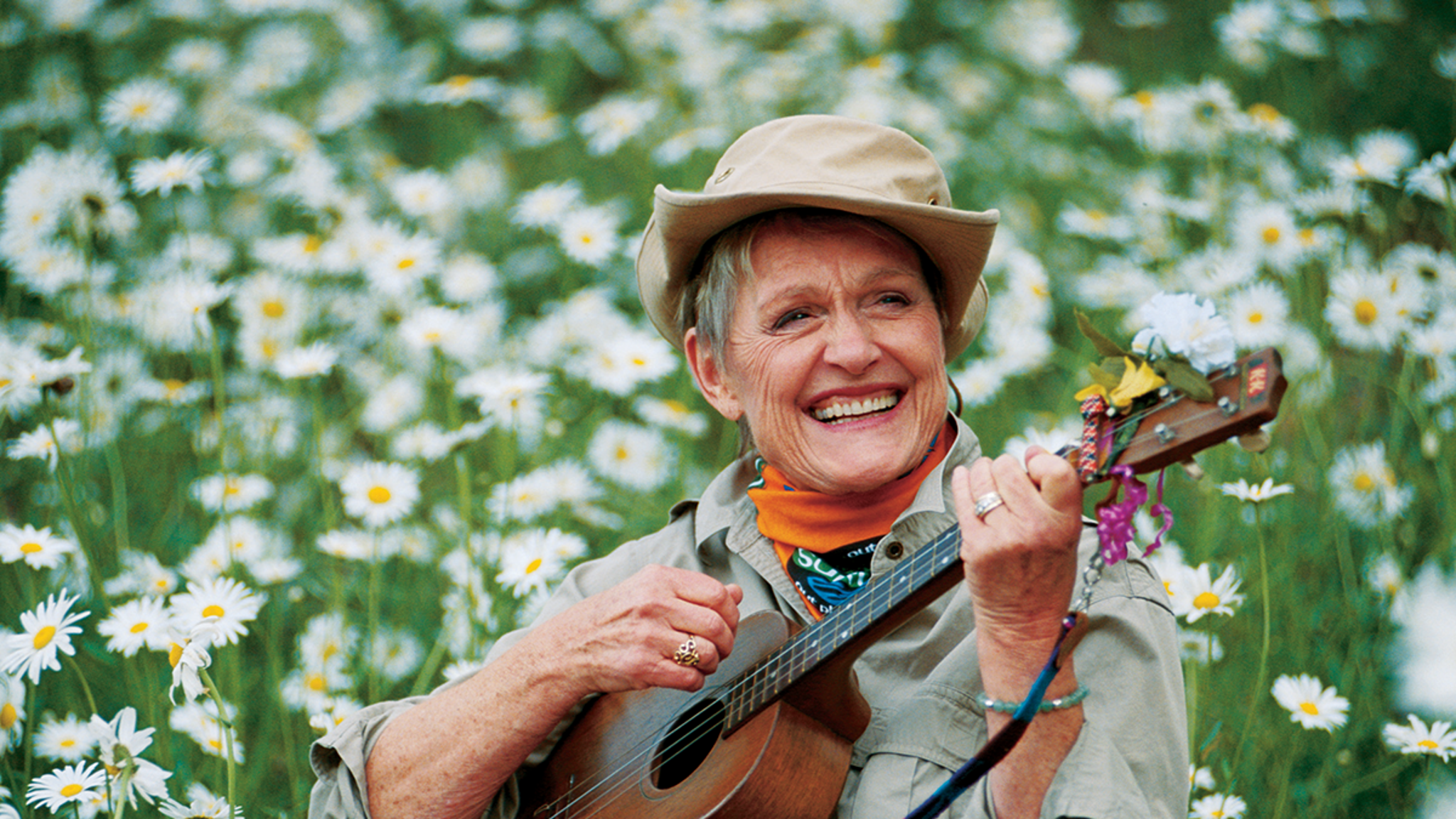
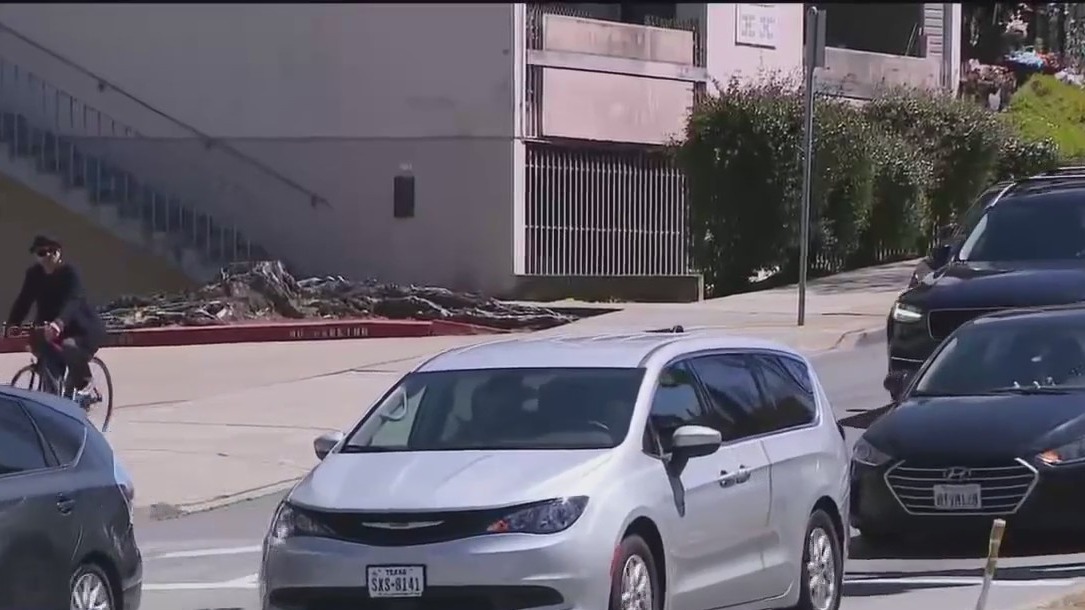
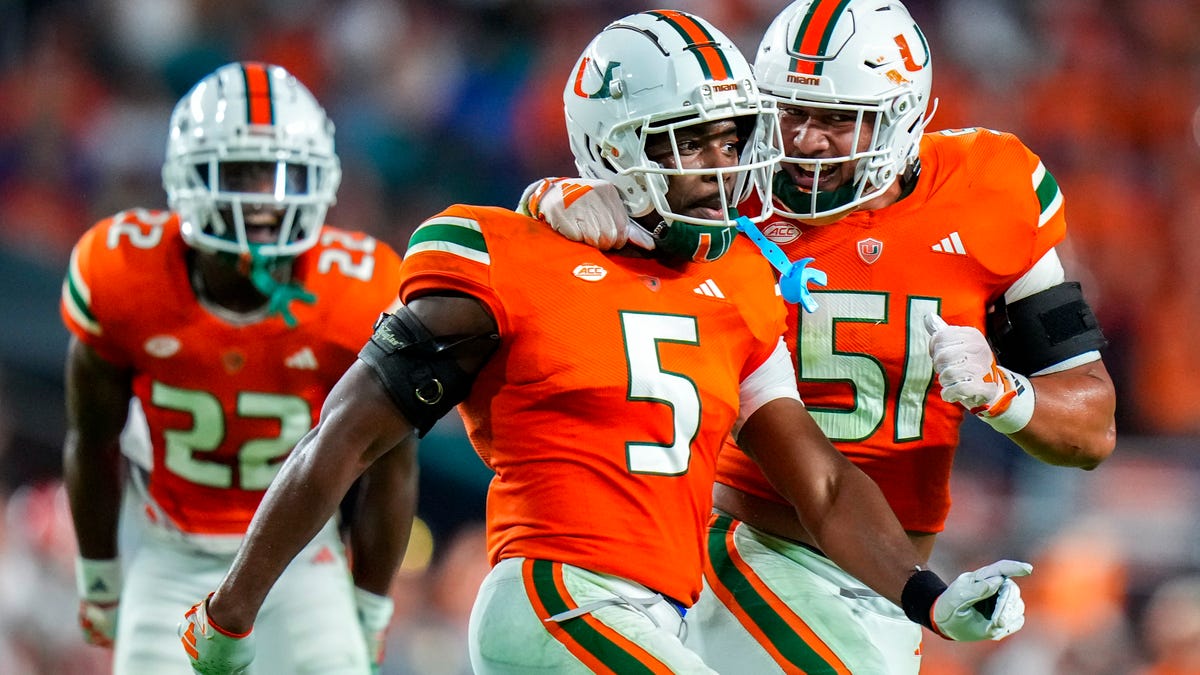
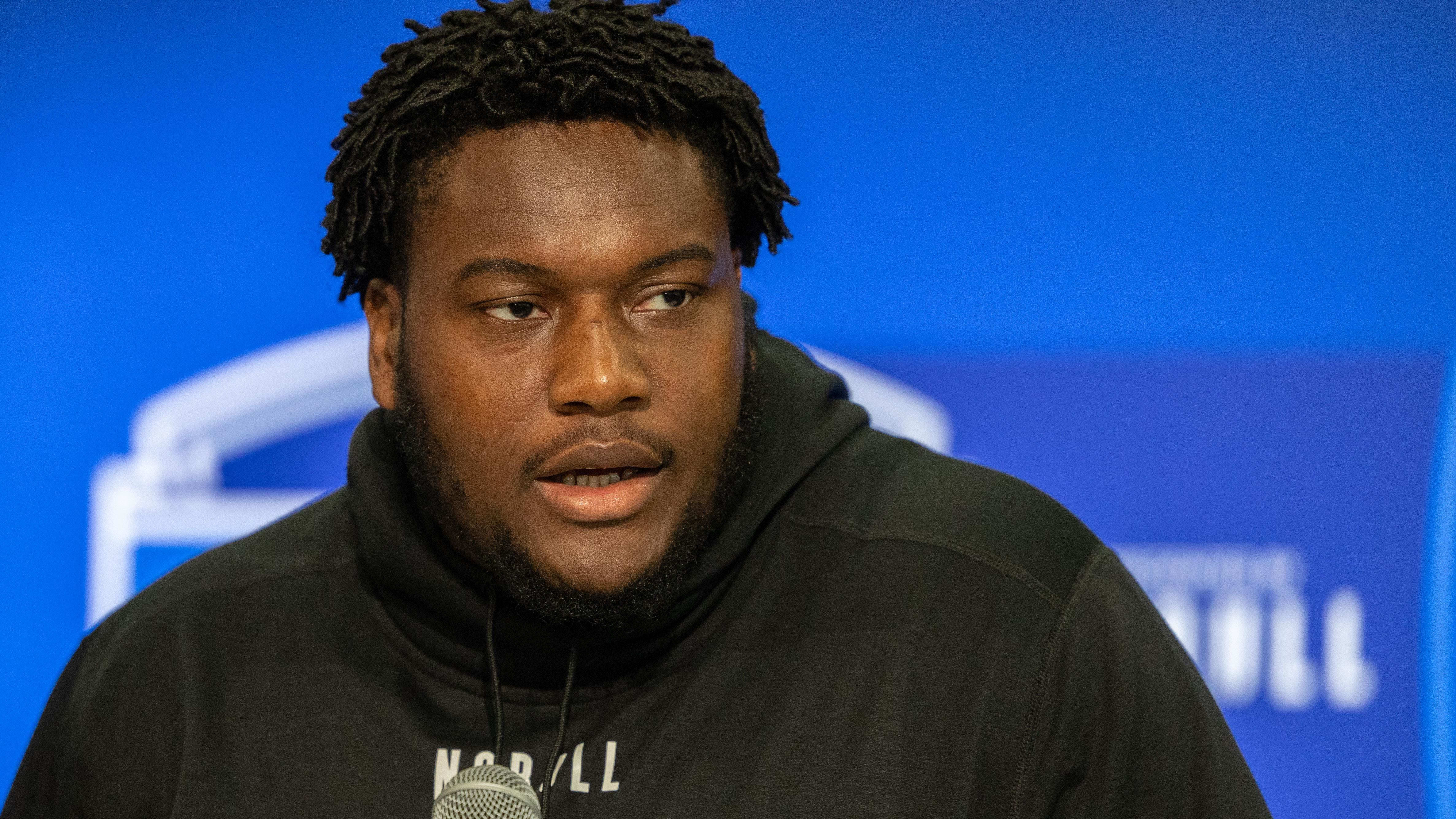
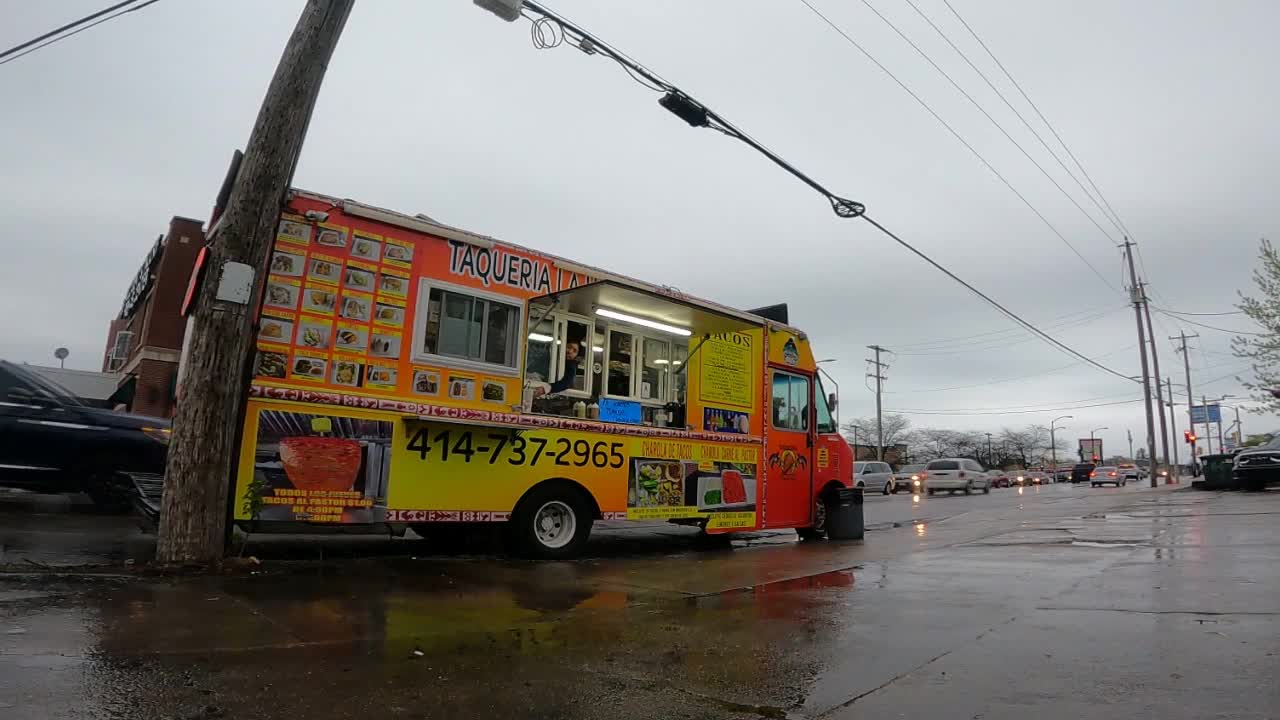
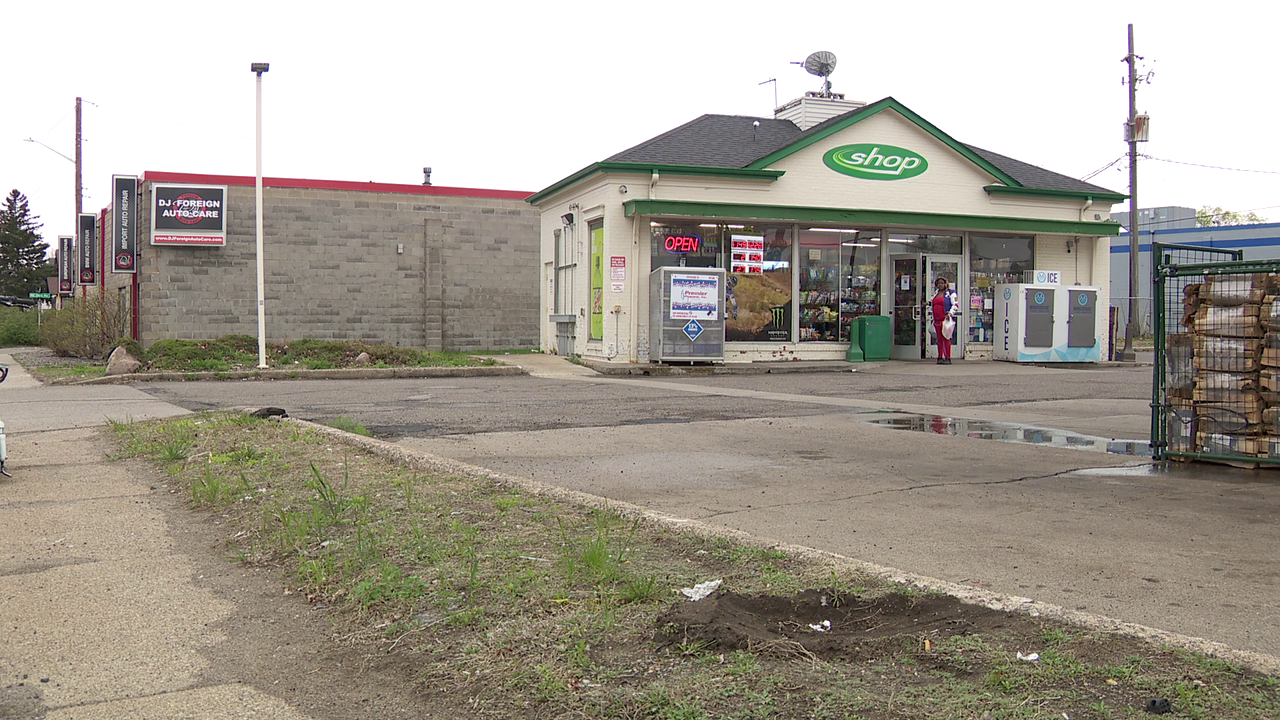
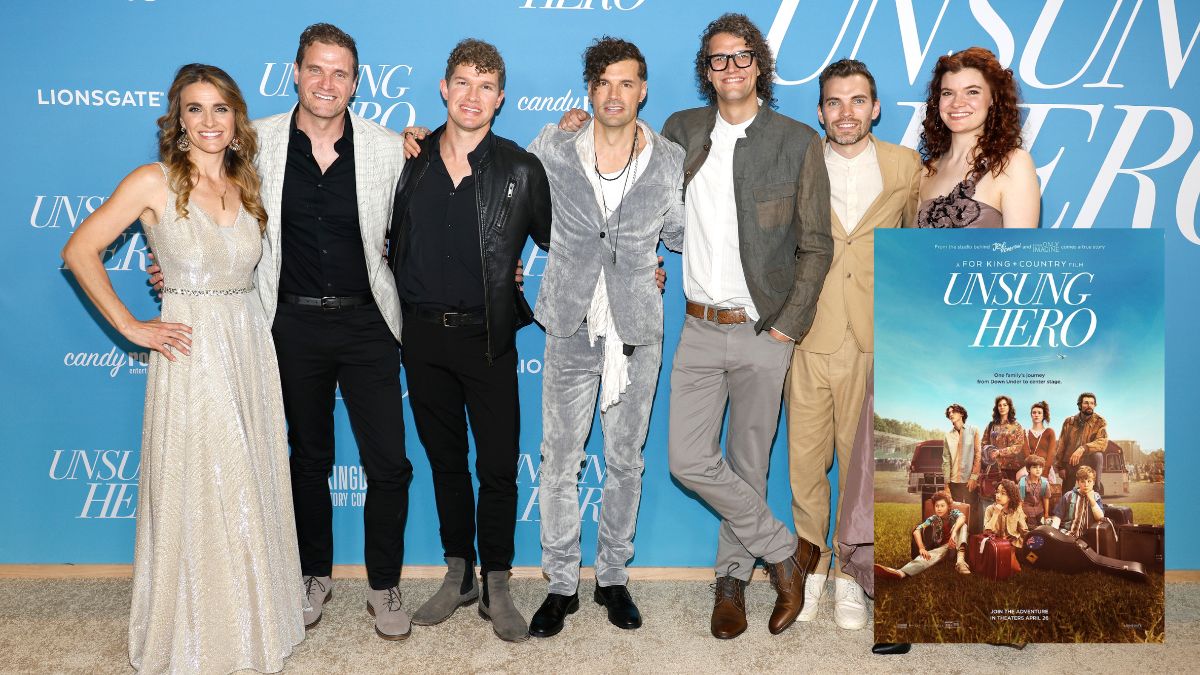



/cdn.vox-cdn.com/uploads/chorus_asset/file/25420631/Screen_Shot_2024_04_26_at_1.29.30_PM.png)









